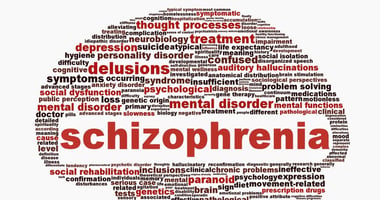Treatment with clozapine alone instead of antipsychotic polypharmacy for treatment-resistant...
rTMS Appears to Counter Schizophrenia Memory Deficits
 |
Since rTMS targeted over the dorsolateral prefrontal cortex has been found to improve working memory in healthy subjects, Daskalakis and his colleagues decided to try it in a four-week, randomized, double-blind, sham-controlled pilot study on 27 individuals with schizophrenia. They found that rTMS, but not the placebo sham, significantly improved the subjects' working memory. Moreover, the subjects' improved memory was comparable to that of healthy individuals.
"We are involved in a replication study that will also endeavor to examine biomarkers of treatment change," Daskalakis said.
To read about recent research exploring whether rTMS may also have role in treating addictions, see Psychiatric News. More information about schizophrenia treatment can be found in American Psychiatric Publishing's Clinical Manual for Treatment of Schizophrenia.
(Image: Yakobchuk Vasyl/Shutterstock.com)





